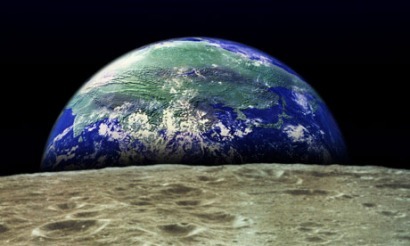
Resilient People, Resilient Planet: A Future worth Choosing, more than a year in preparation by a panel co-chaired South African president Jacob Zuma and Finnish President Tarja Halonen, is a useful successor to Our Common Future, the 1987 Brundtland Report that became the reference text on sustainable development and the basis of the original 1992 Rio Earth Summit, for many considered the start of the global environmental movement.
“The Global Sustainability report gives the highest level political signal yet of greater readiness to take the bold steps needed to build a prosperous future,” says Jim Leape, Director General of WWF International. “This report makes the alarming point that while we are already exceeding the Earth’s capacity to support us, by 2030 we will need 50 per cent more food, 45 per cent more energy and 30 per cent more water than we do today. The High-Level Panel report offers a vision for meeting those challenges. As negotiators develop the text for the Rio Summit in June, we look to them to embrace the urgency and commitments needed to turn this vision into reality.”
Convened by UN Secretary General Ban Ki-moon in 2010, the panel was charged with providing a vision for sustainability, growth and prosperity in the years to come, along with a framework for moving past political and economic hurdles that put progress at risk. The panel, comprising current and former political leaders, was urged to make bold, practical and concrete recommendations reflecting the scale and urgency of the challenges faced by our planet.
Global conservation organization WWF welcomed the report’s call for responsible consumer choices and sustainable resource management, and urged political leaders to create the enabling conditions to allow for the “21st century Green Revolution” called for in the report.
Wanted urgently - a sustainable economy
The Global Sustainability report focuses on a number of essential measures to create a “green economy” and puts forward several wide-ranging recommendations, including: incorporating social and environmental costs in the regulation and pricing of goods; the phasing out of counter-productive subsidies (particularly fossil fuel subsidies); a requirement for business groups to work with governments and international agencies to report annually on environmental practices; and the establishment of a “beyond GDP” Sustainable Development Index or set of indicators to be developed by 2014.
A coherent institutional framework
The second important area covered by the report relates to the strengthening of institutional governance at all levels.
Recommendations include: the establishment of universal Sustainable Development Goals to compliment and succeed the Millennium Development Goals post-2015; the establishment of a new UN Global Sustainable Development Council; and a peer review mechanism to enable states to share experiences and lessons learned.
Other notable areas of the report include: the recognition of the links between food, water and energy and the fact that they should not be treated as separate issues; the need to give priority to challenges facing marine and coastal ecosystems; funds for transition to sustainable development to developing countries; and increased resources for disaster risk reduction.
Report’s weaknesses
Much like the Rio+20 first negotiating draft issued earlier this month, the report is weak on binding commitments, says WWF. The international environment group had concerns that while the recommendations for economic and institutional reform are positive, "the report fails to suggest any concrete, time-bound commitments for progress, leaving policies open to governments to implement as they saw fit". WWF urged the discussion at Rio to reflect the need for obligations and commitments in the recognition that this is about everyone’s future prosperity.
While the report focuses strongly on environmental concerns the Rio negotiations need to further integrate social issues which are core to sustainability.
"For real change, we need to take into account social issues such as poverty eradication, gender equality, fair distribution of resources, advancing of education and employment creation. Recommendations must make the link between social welfare and environmental health," says WWF.
For additional information:

